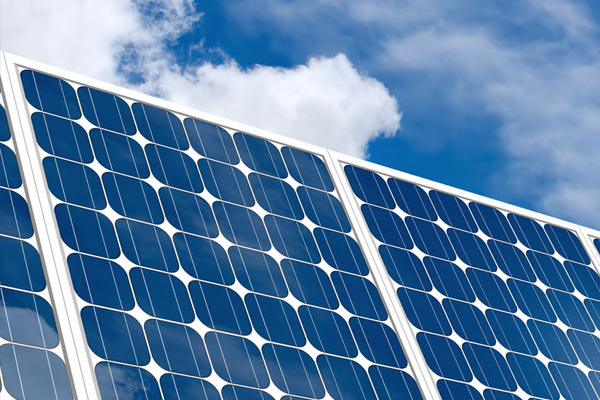
Backing solar is within national economic interest amid energy crisis, says Solar Energy UK. Image: Absolute Solar and Wind.
As the new government regime backs the development of solar energy, Solar Energy UK has suggested that it is in the Treasury’s interest to back the clean energy generation technology.
The Prime Minister pledged to “speed up our deployment of all clean and renewable technologies”, including solar. This helps reassure the industry after Truss previously dismissed solar farms as “paraphernalia” in her leadership campaign.
With the introduction of the price guarantee scheme, new Prime Minister Liz Truss has also enabled taxpayers to both save money and prevent the distribution of capital destined for the fossil fuel sector.
In doing so, it is clear this capital could now be invested and reallocated to the development of renewable energy generation including wind farms and solar energy in order to tackle the high wholesale gas prices plaguing the globe.
“The economics of rooftop solar have never been better – and we have the evidence to prove it,” said Solar Energy UK Chief Executive Chris Hewett. “But while they drive down the cost of energy for homes and businesses, the UK is in dire need of new solar farms to provide cheap, green, secure power for all of us.”
Solar Energy UK argues that a swift decarbonisation of the UK’s energy sector is now a direction to take in the national economic interest. This backs the thoughts of the general public with polling released by Survation showcasing that almost every constituency in the UK is in favour of developing renewable generation sites in a bid to reduce the cost of energy.
77% of people in the UK believe the government should use new wind and solar farms to reduce electricity bills, with 76% of people also in support of building renewable energy projects in their local area, according to Survation’s data.
Truss revealed yesterday that the price cap is to be set at £2,500 for two years from October onward as part of a range of measures designed to address the energy crisis.
The Energy Price Guarantee supersedes the price cap which was set at £3,549 for the three months from October. This was an increase of 80% from the level of the Default Tariff Price Cap over the summer.
This scheme will be brought in along with the existing £400 support package, which will be delivered to households by their suppliers over six months from October. It will save the average household £1,000 over the course of a year, Truss stated.
“Decades of short-term thinking on energy has failed to focus enough on securing supply – with Russia’s war in Ukraine exposing the flaws in our energy security and driving bills higher. I’m ending this once and for all,” Truss said as she addressed the House of Commons for the first time in her new role.
With these measures being introduced, Solar Energy UK supports its inclusion and development and stands ready to support the government’s goals. One of which includes plans to become a net energy exporter by 2040 to support further expansion.
There are concerns however. Despite pledging to support the renewable sector and solar, the measures being introduced are far less specific as those being introduced to speed up oil and gas exploration.
This could cause uncertainty for the renewable sector in the UK and could increase a reliance on fossil fuel usage to mitigate the impact of the costs of energy when in fact a unique opportunity lies in wait by exploring low carbon technologies.
The energy crisis has seen an increase in the interest of renewable generation. Clean energy company Egg has seen enquiries for solar panels rise by 830% in the past four months, as the UK was rocked by successive heatwaves in comparison to last year.

